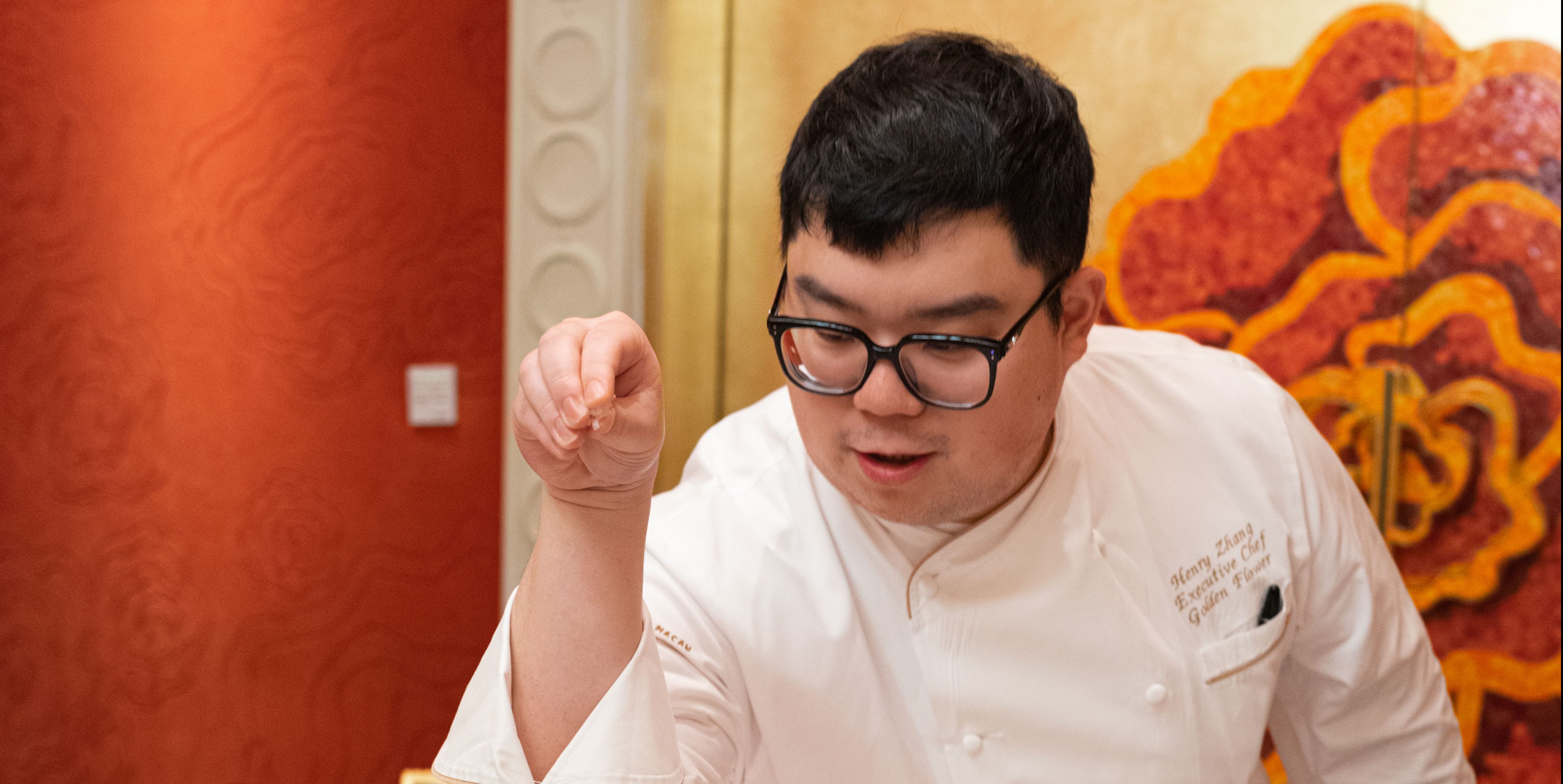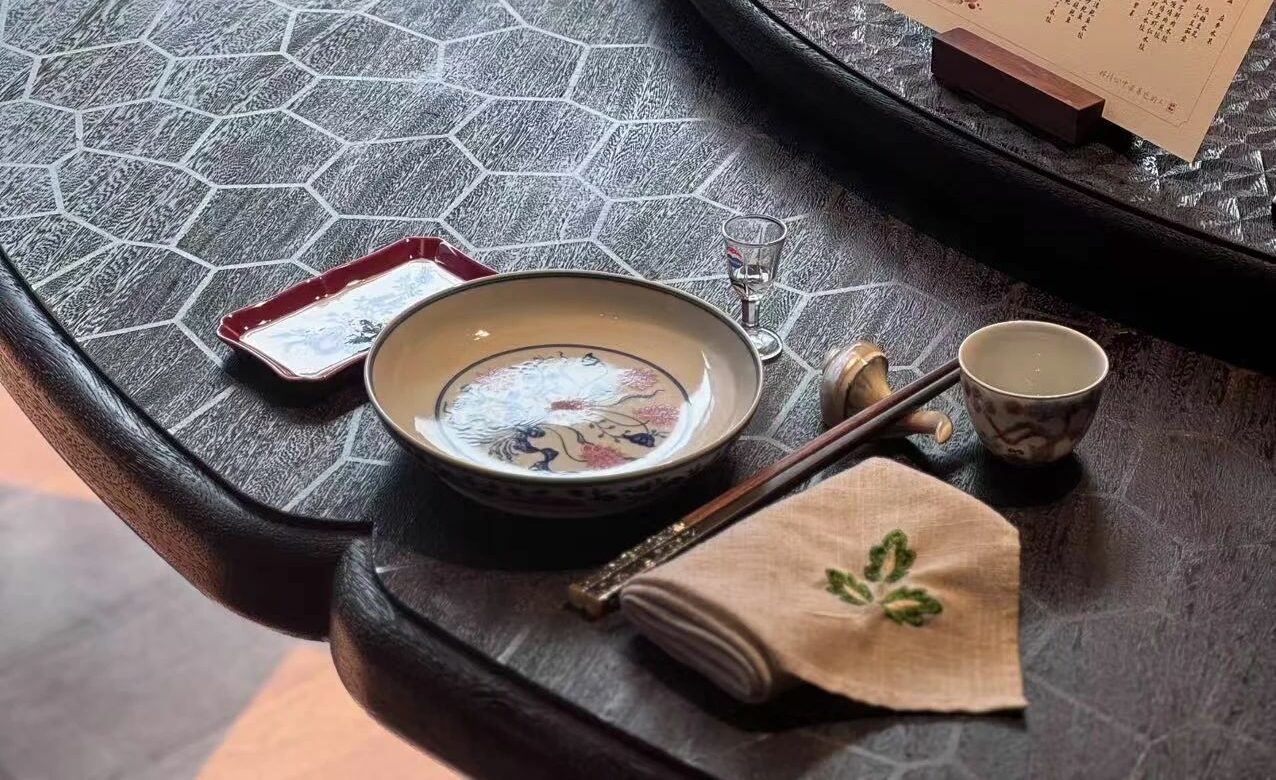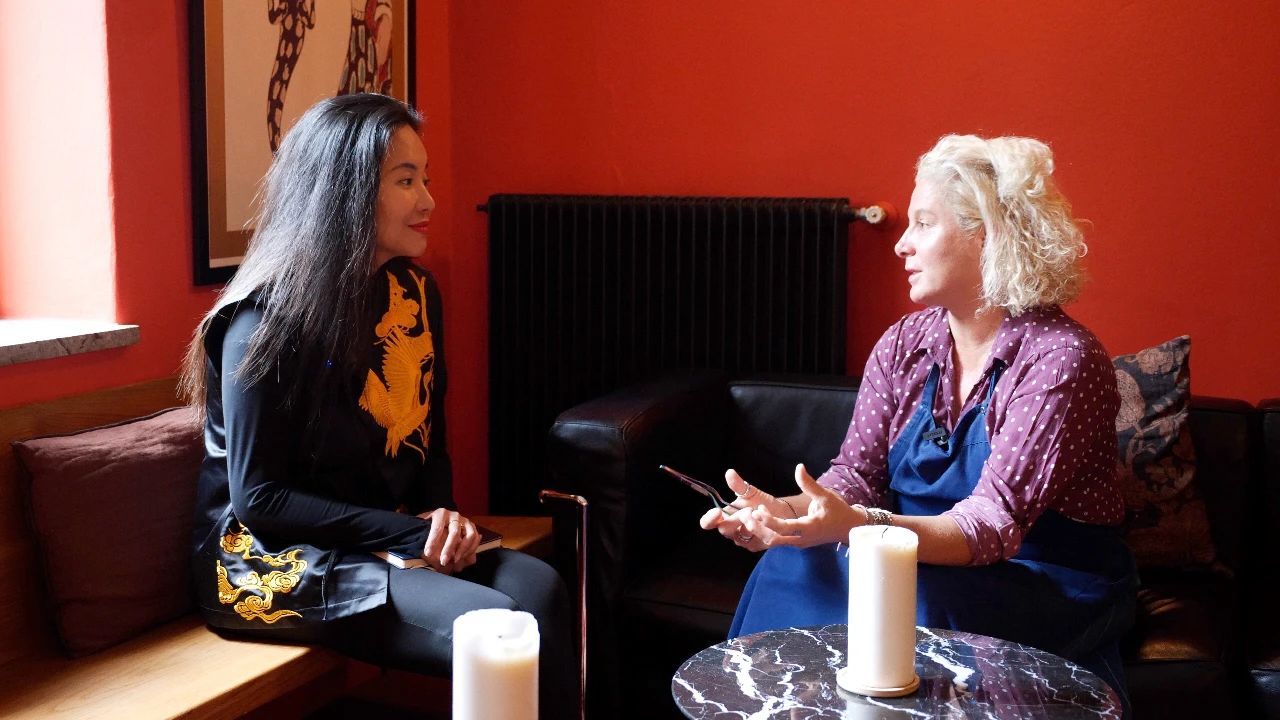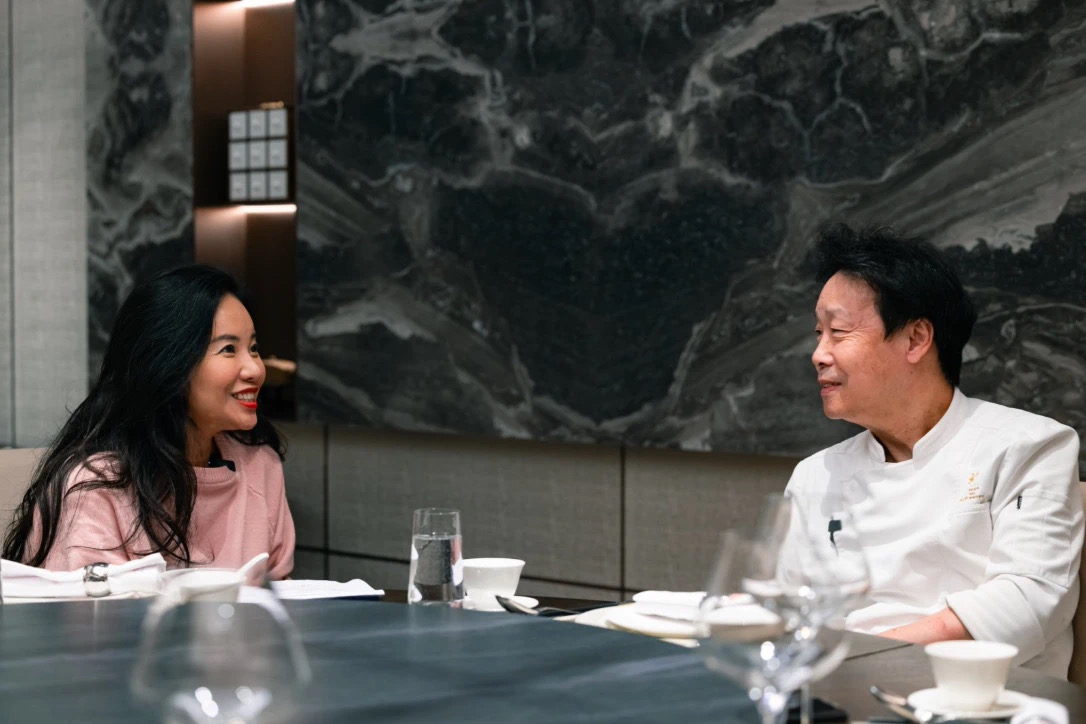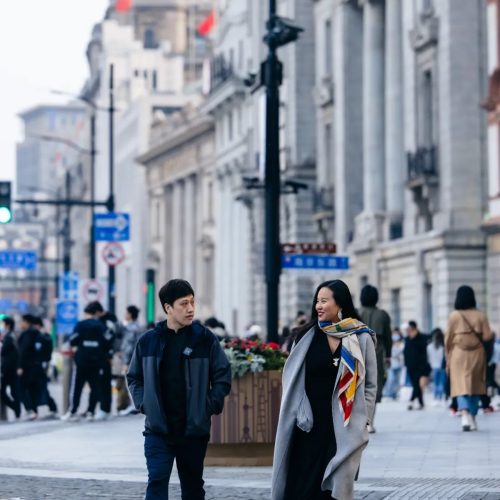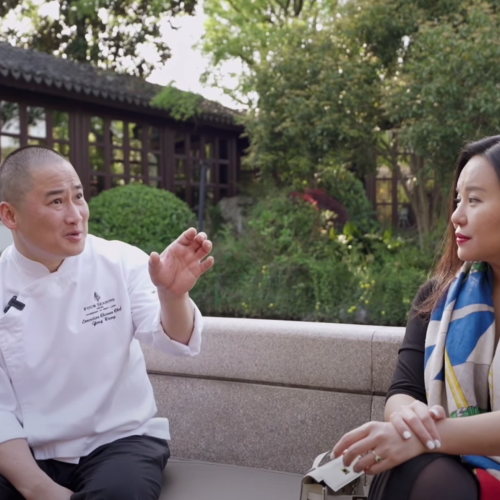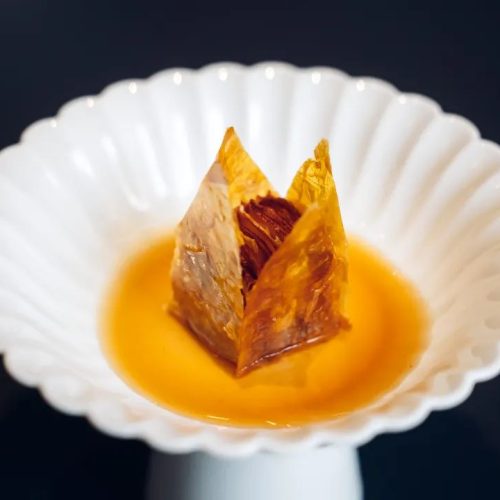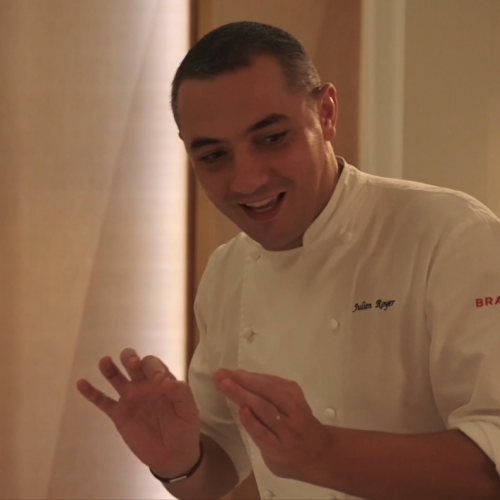Author:Jocelyn Chen
Nicknamed as “Little Chubby”, chef Zhang Zhicheng, famous for his private kitchen restaurant in Beijing, has taken over the reins of Golden Flower at Wynn Macau at the tender age of under 30. Like the Cooking Master Boy in real life, he brings authentic Chinese regional flavours to create rich, complex and timeless dishes that offer gastronomically sensual delight and indulgence.
Talking about why he wanted to become a chef, he said that he grew up watching the anime “Cooking Master Boy”, which has given many inspirations and influence on his cooking style. “To be honest, I’m a pretty proud person. Cooking makes me feel proud and it brings me fulfillment more than money or fame does. I want people’s recognition for my cooking. I was quite introverted before I entered this industry; talking with people made me feel a bit unsettled. But when I’m cooking, I feel very excited if I find people who can really understand my cooking, and I am always in the mood for work,” Chef Zhang shares.

Executive Chef Zhang Zhicheng
Born in a literary family, he was initially opposed by his families going into the kitchen for fear of him getting hurt. It was the talent for tasting and cooking that led him to his determination. He shot to stardom right after he opened Yanjintang in Beijing, which is regarded as a restaurant for the latent rich. I also heard a director of a listed company describing it as one of the best restaurants to visit in Beijing. Having not been able to travel to Beijing, I finally got the chance to visit Chef Zhang in Macau.
Chef Zhang came in as the previous executive chef of Golden Flower went on retirement. Appointing younger chefs seems to have become a tactic adopted by high-end restaurants, which I personally think is an effective way to catch public attention. Similarly, Alain Ducasse’s three-starred Plaza Athénée in Paris also brought in a young chef after its partnership with the hotel ended.Chef Zhang was already very popular among his fans in Beijing, but I didn’t know very well what his cooking style was. After visiting, I realised the reason diners are willing to follow him all the way to Macau – his dishes are simply too good to be missed.


We talked about what motived him the most to take on this role. “There’s an old saying in Beijing that says, ‘If there is a good offer, all you need to do is to take it’,” he continues, “I think Macau is the ‘Dubai’ of China; I like the service and style here, which go well with my way of cooking.”
Chef Zhang refers to his dishes as “probably a bit hearty”, but never fail to be tasty. He says, “I have my own rules for cooking: if I don’t think this dish is good, I won’t serve it. I do all the calculations in my head about the cooking process but I believe cooking is not just an accumulation of food. I only serve what makes the diners feel good.”



From top:Sliced sea conch tossed with Sichuan pepper oil/
Slow-cooked abalone with crispy scallion/
Shark’s fin in superior chicken broth
When asked about what considerations he takes into account in the development of the menu in Macau, he believes that a good chef never picks the place to cook because he would always follow his aesthetics, only those restaurants with good service attract him like a magnet. So, as long as the style is compatible, he never lets external factors change his cooking style and what he considers to be good cuisine.
He loves using cheese to add richness to his dishes. One of the most impressive was the deep-fried spring roll filled with shark’s fin and aged Parmesan cheese which feature two layers of paper-thin dough crust, crispy on the outside and soft, juicy inside with explosive flavours in the mouth.


Deep-fried spring roll filled with shark’s fin and aged Parmesan cheese
Another one, braised yellow corker with blue cheese accompany homemade noodle, in which the yellowtail is marinated in Wang Zhihe stinky tofu sauce rather than being fermented, sees the creative marriage of two “smelly” ingredients to substantiate a surprisingly perfect match. The cooking process highlights fresh chili notes comprising tabasco peppers and Chinee green peppers, relieving greasiness while giving rise to tenderness of the fish. A uniquely lavish and full-bodied dish.
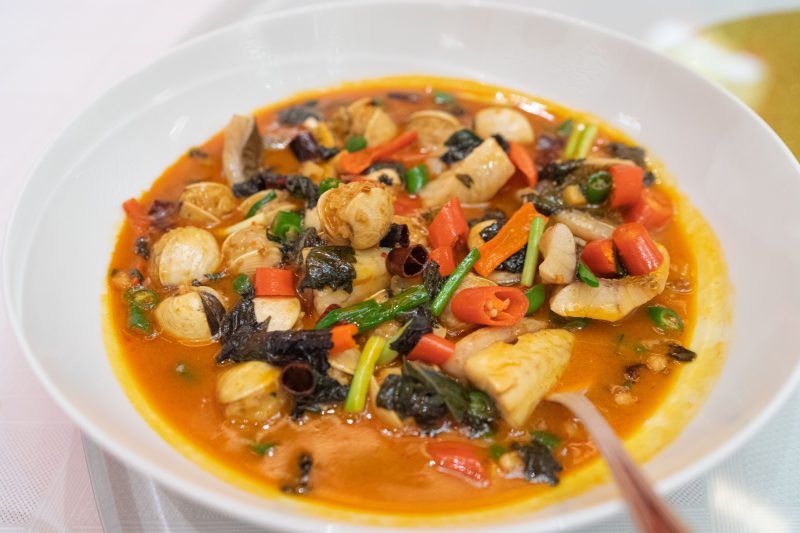

Braised yellow corker with blue cheese accompany homemade noodle
The steamed spotted sea crab and flat rice noodles with Huadiao chicken oil incorporates a special marinade, a common cooking method in Jiangsu and Zhejiang provinces, but here Chef Zhang translates into another style harmonious to the flavour portfolio.


Steamed spotted seacrab and flat rice noodles with Huadiao chicken oil


Stir-fry 300 day dry aged steak
The starring dessert was white sesame bird’s nest crép roll with white truffle. The white truffle season is typically over by early December, but Chef Zhang explained that he preserves the white truffles in earth. Although I wasn’t sure if the method would reduce the flavour of the truffle, it did make for an eye-catching dessert.
Another dessert is the homemade yoghurt with caviar. Blini with caviar and sour cream is a classic dish, yet the pairing of yoghurt and caviar makes a suitably toothsome base to sweetness. This reminds me of the cheesecake and caviar dish at Eleven Madison Park in New York.



White sesame bird’s nest crep roll with white truffle/
Homemade yoghurt with caviar
The wonderful meal I had was an unapologetic, smack you over the head, explosion of flavour. Even the starters were righteously luscious to be called main courses. Each course was a surprise and a delight, but maybe it’s best satiated with a pause at the climax for those with lighter taste buds. Chef Zhang’s cooking reminds me of the three-starred Kadowaki in Tokyo, which features kappou (tailor made style) kaiseki cuisine that uses a lot of pricy ingredients such as truffle and foie gras. Some complain it is a piling of expensive ingredients, but if you do this right in a beautiful way, you still win a big round of applause.
Chef Zhang demonstrates wisdom and maturity beyond his age. Having his own understanding of cooking, he exudes the vital energy of a comic character with determination and so much passion. His dishes are richly loaded with refined techniques, lush ingredients and bold flavours. They are difficult to define but undeniably delicious.

The “one-of-a-kind” noodle is a complete reflection of his love for “Cooking Master Boy” and it offers a peek into the Chinese culinary world while showing the possibilities of exact execution and great refinedness. A self-aware exchange means one comes to a foreign land to learn and returns home to integrate the local terroir and culture. Although traces of similarity could be found, Chef Zhang has incorporated his own ideas and practices in his dishes. Obviously, he knows how to learn and is talented indeed to make it even better.
Talking about his understanding of traditional Chinese cuisine and court cuisine, he believes that Chinese cuisine is time-honoured and profound, and that the eight major Chinese cuisines are all highly developed with substance and subtlety. “Take the fish maw for example. There is the Gongbao fish maw and fish-flavoured fish maw, but Chinese cuisine is never about what expensive ingredients you pile up in your plate, it’s about seeing true craftsmanship through the ordinary,” Chef Zhang says.

 Wine paring for the dinner
Wine paring for the dinner
His cooking, like the food itself, has no boundary; the exploration and wanders of it know no framework. Golden Flower has become one of the hardest to book restaurants in Macau. Talking about the process of getting along with the Macau team, he shared that there were some difficulties at the beginning, partly because of his sturdy aspiration of breaking away from the entrenched views and traditions held by the local team. But everything went on smoothly eventually. By making one small change at a time, they are now working as one.

Left to right: Executive Director of F&B at Wynn Palace, Nelson Ang;
Author; Chef Zhang Zhicheng
“My hope is that, in the future, there will be a kind of tacit understanding between myself, the kitchen team, the service team, and the diners, which doesn’t come easy but I’ve always aspired to achieve. And of course I hope to get the Michelin stars back for the restaurant,” says Chef Zhang. It was a pity that Golden Flower lost two stars since the reopening after its former executive chef retired last year.
Dining at Golden Flower was like enjoying a fireworks show; there was no peak or trough, only wonders. As it welcomes a full house of diners already, we look forward to seeing Chef Zhang Zhicheng pick up Michelin stars for the restaurant.
-END-
Author: Jocelyn Chen
Photo: Emily Yang



